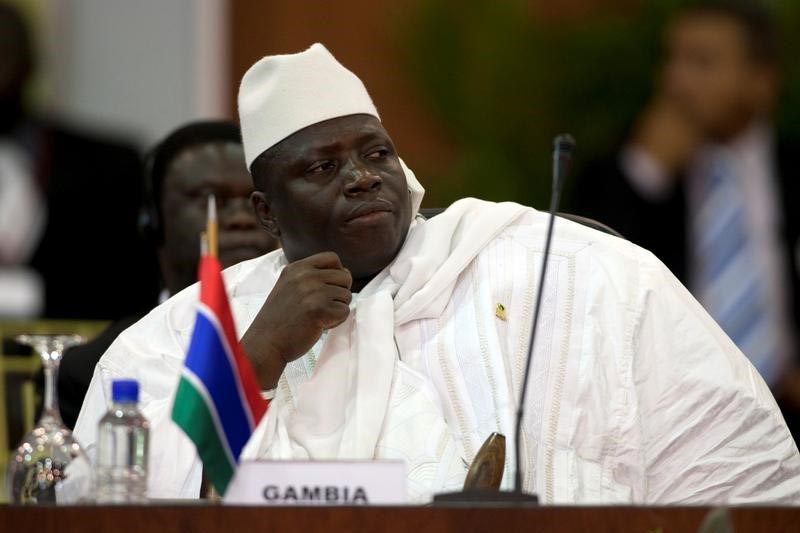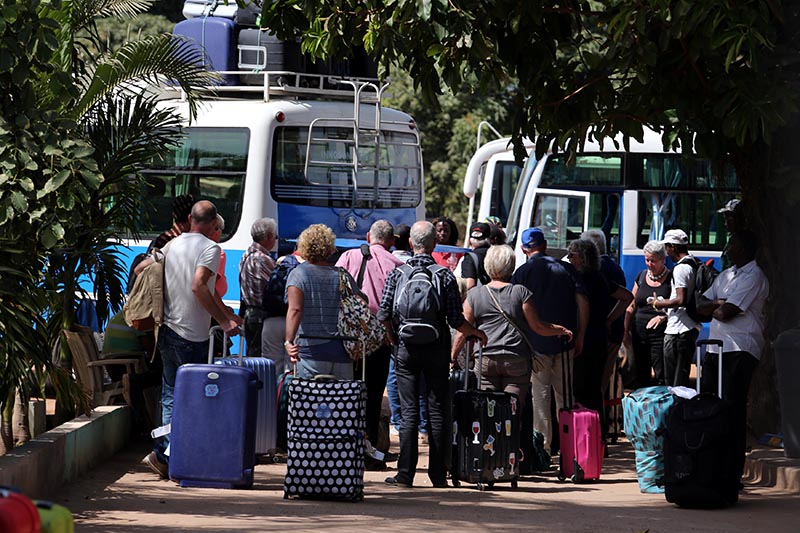UN says 45,000 flee Gambia amid political turmoil
GENEVA: Political turmoil in Gambia has driven about 45,000 people, mainly children, to flee into Senegal since Jan. 1, the UN refugee agency UNHCR said on Friday, citing figures from the Senegalese government.
"The next few days will be critical and more people may leave the country if the current situation is not resolved peacefully soon," UNHCR said in a statement. Senegalese authorities had prepared aid for 100,000 arrivals, it said.

Gambia's Jammeh offered last chance for peaceful exit before troops advance
BANJUL: West African leaders were due in Banjul on Friday morning to offer Gambia's veteran leader Yahya Jammeh a last chance to step down peacefully before regional forces, which have already entered the country, oust him.
Troops from regional bloc ECOWAS, spearheaded by Senegal and Nigeria, crossed into Gambia on Thursday at the request of newly elected President Adama Barrow, who had to be sworn in at Gambia's embassy in Dakar as Jammeh clings to office.
The West African armies have given Jammeh, in power since a 1994 coup, until midday on Friday to quit before they continue their advance across the tiny slither of a country to the capital, Banjul.
The city was quiet overnight after hundreds of Gambians celebrated Barrow's swearing in and the subsequent ECOWAS advance into their country - a popular destination for European tourists that Jammeh has ruled with an iron fist.
Gambia's only land border is with Senegal and the regional coalition, which ECOWAS says involves 7,000 troops, has entered from the southeast, southwest and north.
Marcel de Souza, head of the ECOWAS commission, said Guinea's President Alpha Conde would travel to Banjul with the leaders of Mauritania and Liberia to try to convince Jammeh to travel to Guinea before choosing a country of exile.
"It's out of the question that he stays in place," de Souza said.
Jammeh initially conceded to Barrow after a December election before he reversed his decision, saying the vote was flawed and he would remain in power until a new election could be held.
Barrow has been recognised as Gambia's new president by world powers and Jammeh is increasingly isolated at home as ministers abandoned his camp.
On Thursday night, army chief General Ousman Badjie, who had publicly stood by Jammeh, was seen smiling on the streets, wading through a mass of jubilant Banjul residents shouting and dancing.
Barrow asked for foreign help to assume office immediately after he was sworn in on Thursday, a plan that was backed by the UN Security Council in New York.






